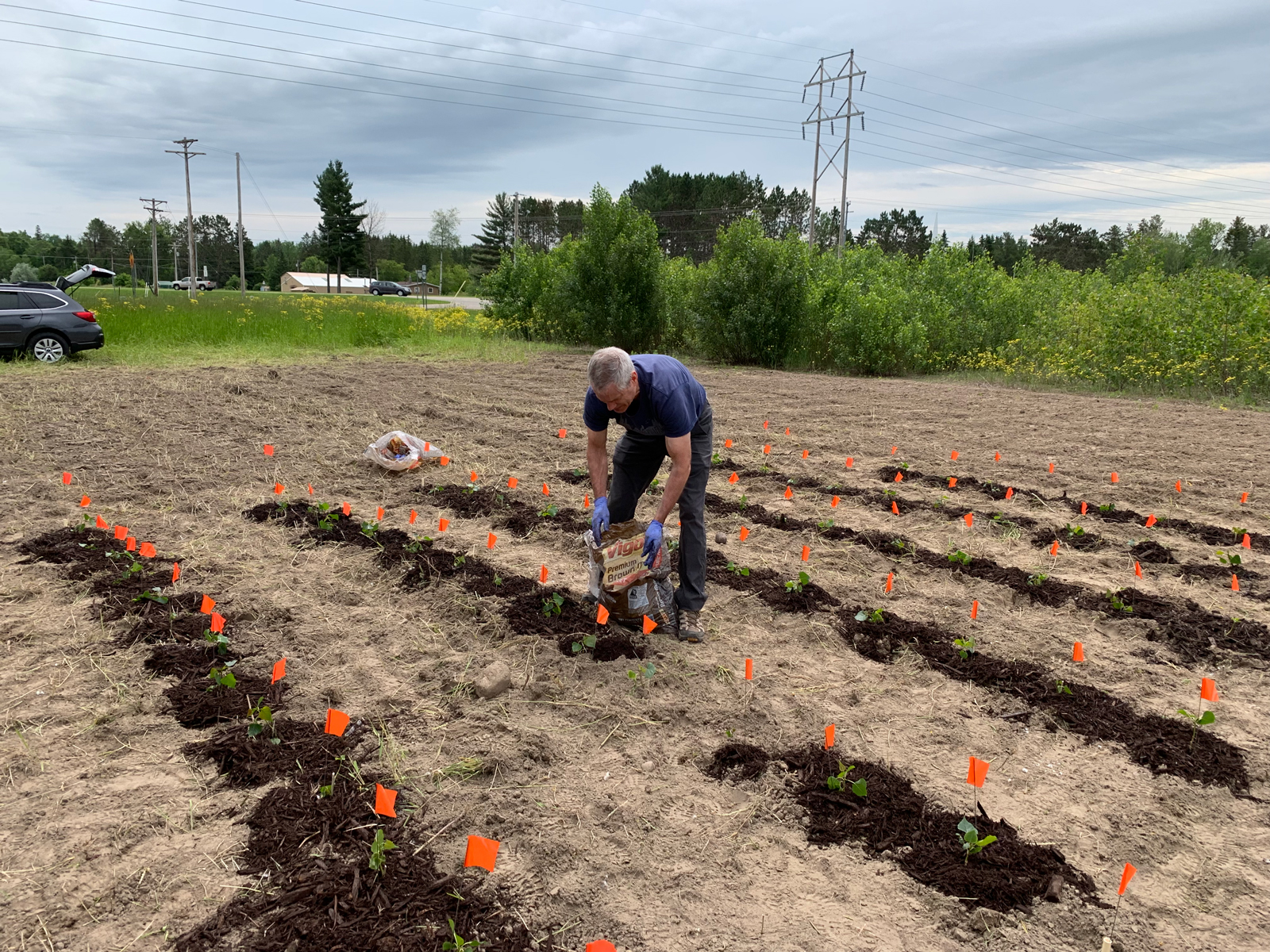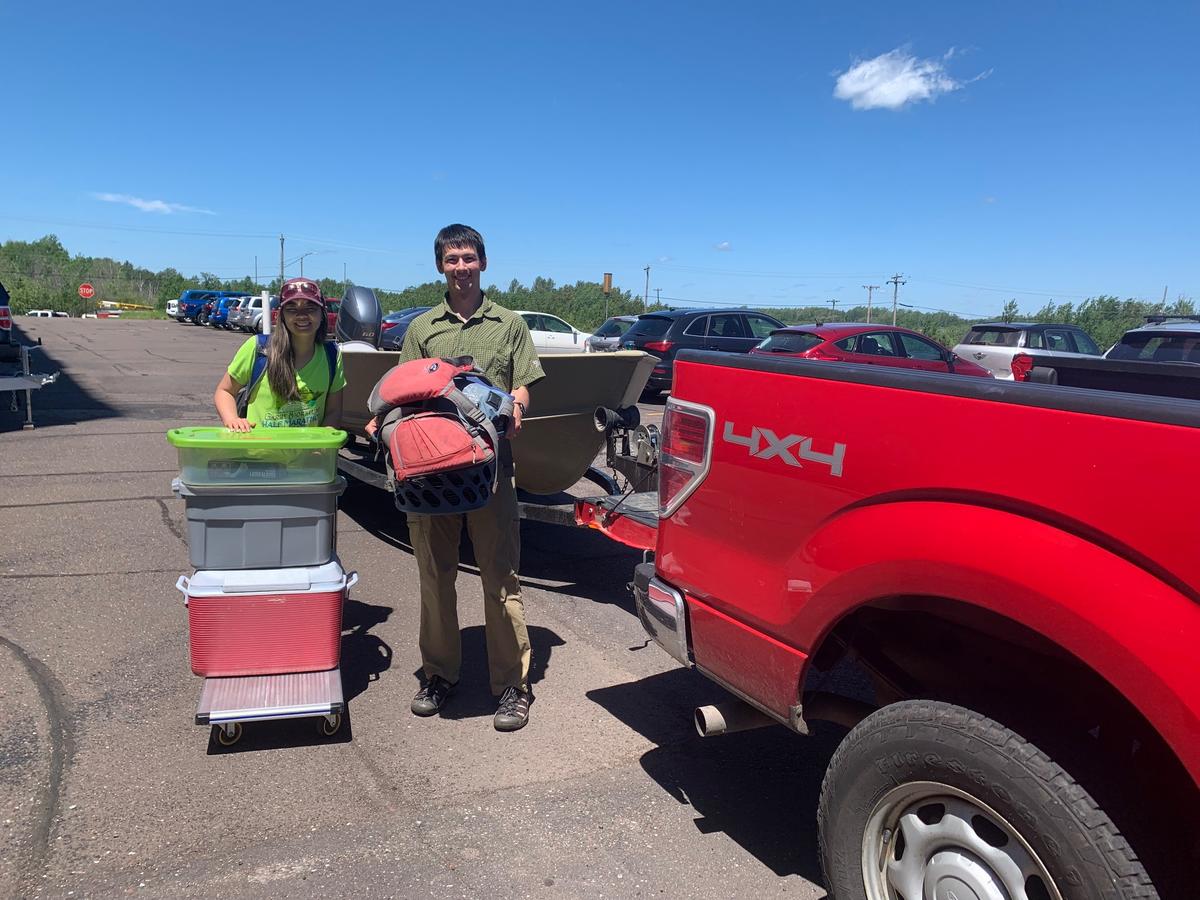Our research is focused on NRRI’s three strategic research initiatives: Ecosystem Resilience, Future Forest Industries and Iron/Minerals of the Future. Here’s a sampling:
Ecosystem Resilience
- Demonstrations of three novel technologies are underway that effectively and inexpensively reduce sulfate in mine pit lakes, wild rice water bodies and municipal water treatment facilities to meet strict water quality standards for northern Minnesota.
- Wildlife research to better understand habitat needs and human impacts in shared ecosystems.
- Tracking pine martens with GPS collars in the Superior National Forest for a study on diet and movements of martens across the Western Great Lakes.
- Investigating habitat use and interactions between two northern Minnesota carnivores – bobcats and fishers – with GPS collars.
- Installing nest boxes for wood turtles to help them survive predators.
- Analyzing road-killed deer to identify ways to reduce vehicle collisions.
- Sample collecting is intense during the summer for four long-term and recurring programs funded by the Environmental Protection Agency to improve scientific knowledge of the Great Lakes freshwater resources:
- The Great Lakes Biological Monitoring Program: Tracking changes in the bottom of Great Lakes food webs, and their implications.
- Sediment Surveillance Survey: Documenting the extent of legacy and emerging contaminants throughout the Great Lakes.
- Coastal Wetlands Monitoring: Understanding environmental impacts in coastal wetlands and their implications for wildlife and humans.
- Ballast Water Management: Evaluating whether candidate treatment systems effectively exterminate microorganisms in ships’ ballast water to reduce the spread of invasive species.
Future Forest Industries

- Five regional nurseries are growing and evaluating NRRI’s fast-growing, disease-resistant hybrid poplar. The InnovaTree™ (patent pending) can be used to produce biofuels, bioenergy and bioplastics, and remove pollutants from soil and water. Once the nurseries offer it for sale it will be available for online and in-person purchase. NRRI scientists are also busy working with cooperators to test InnovaTree and other NRRI varieties for performance in landfill remediation efforts.
- Arbor Wood Co., a new timber building products manufacturer, has an advanced thermal modification plant under construction this summer in Eveleth, Minn. NRRI’s decades of research on the heat-treatment process has given this local business the foundational knowledge to expand.
- NRRI scientists are advancing the science and application of carbon sequestering biochar, a material that can be produced from waste biomass materials or agroforestry products. Researchers are collecting materials that are being evaluated as filter media for removing contaminants in water, like phosphate. They are also exploring the use of biochar to improve revegetation of closed landfill covers and using biochar to supplant coal in the steelmaking process.
Iron of the Future
- NRRI is working with industry and agency partners to derive higher value products from Minnesota’s iron resources, like direct reduced iron products for the growing electric arc steel mills. This summer, NRRI engineers are altering the chemistry of iron ore pellets for more efficient iron and steel production.
- NRRI Economic Geologist is co-teaching an Advanced Field Geology course with the University’s Department of Earth and Environmental Sciences on fundamental field skills for mapping Minnesota’s complex geology going back some 2.7 billion years.
PHOTO TOP: NRRI researchers Anna Tostch and Zach Wagner return to NRRI Duluth and unpack field gear.
